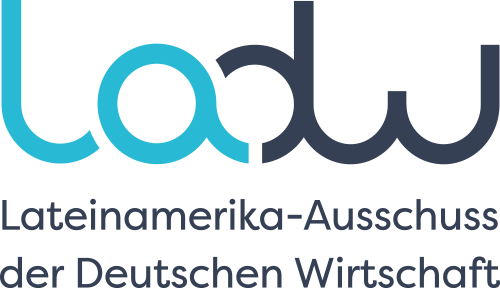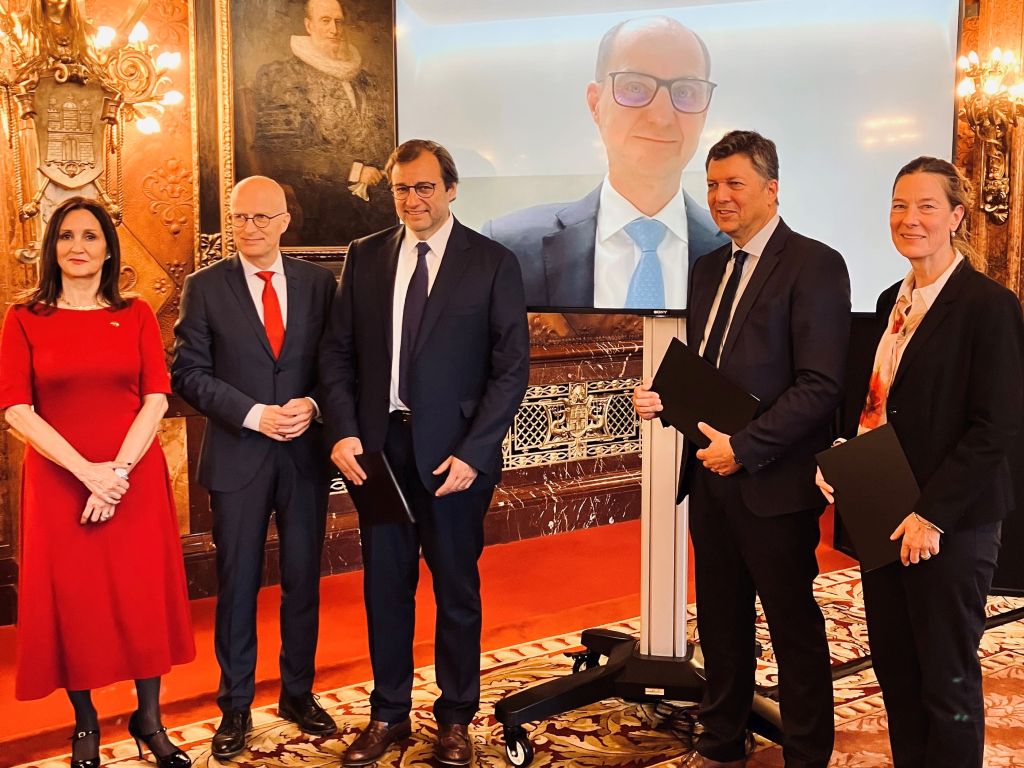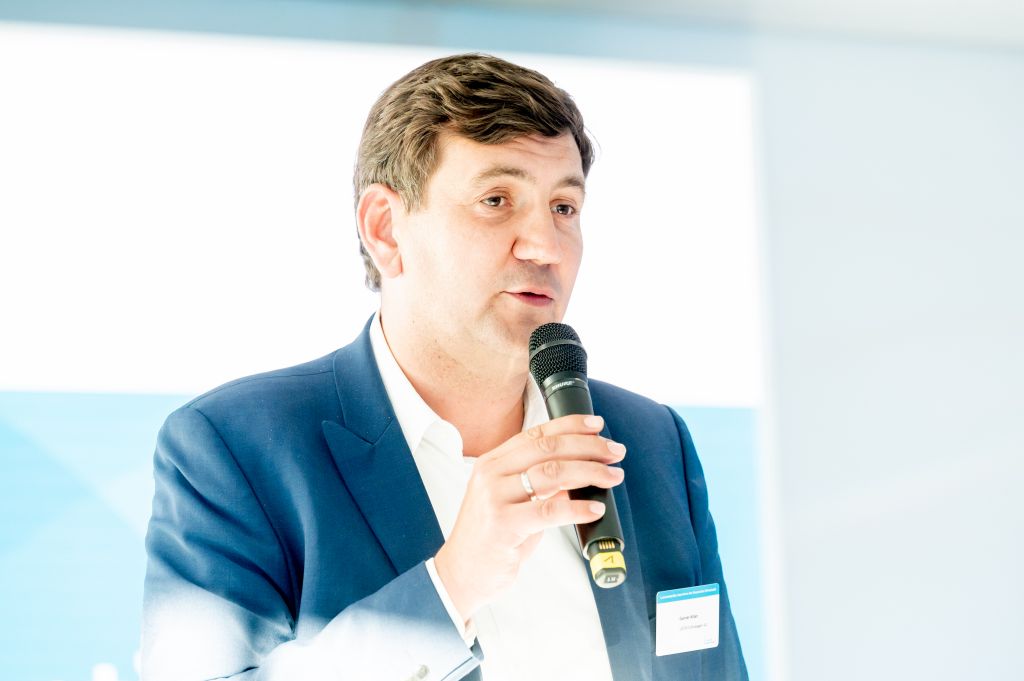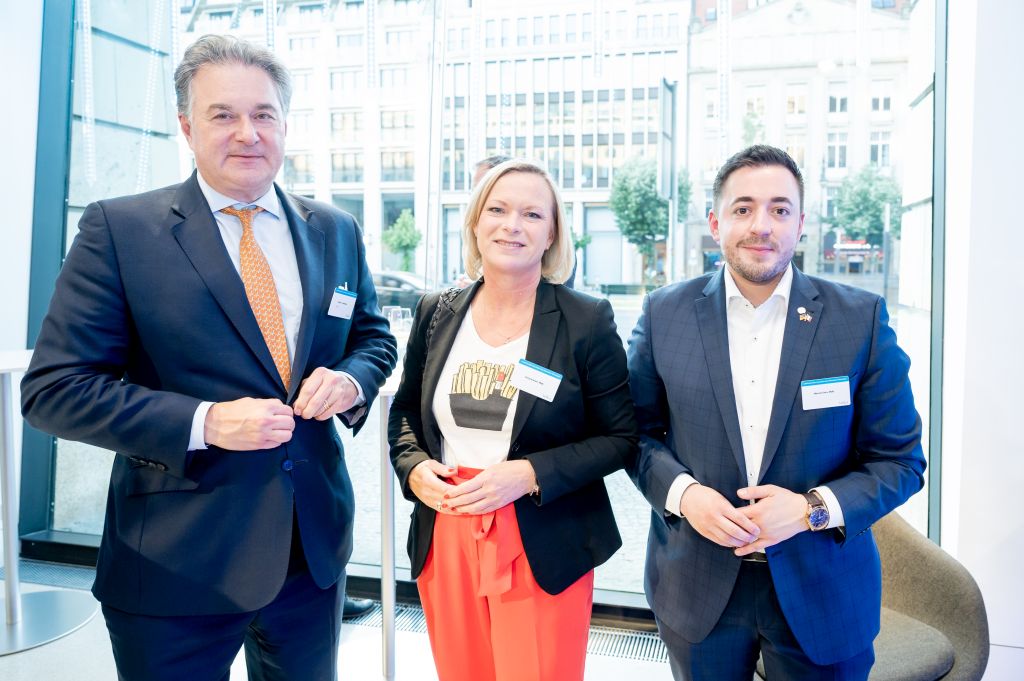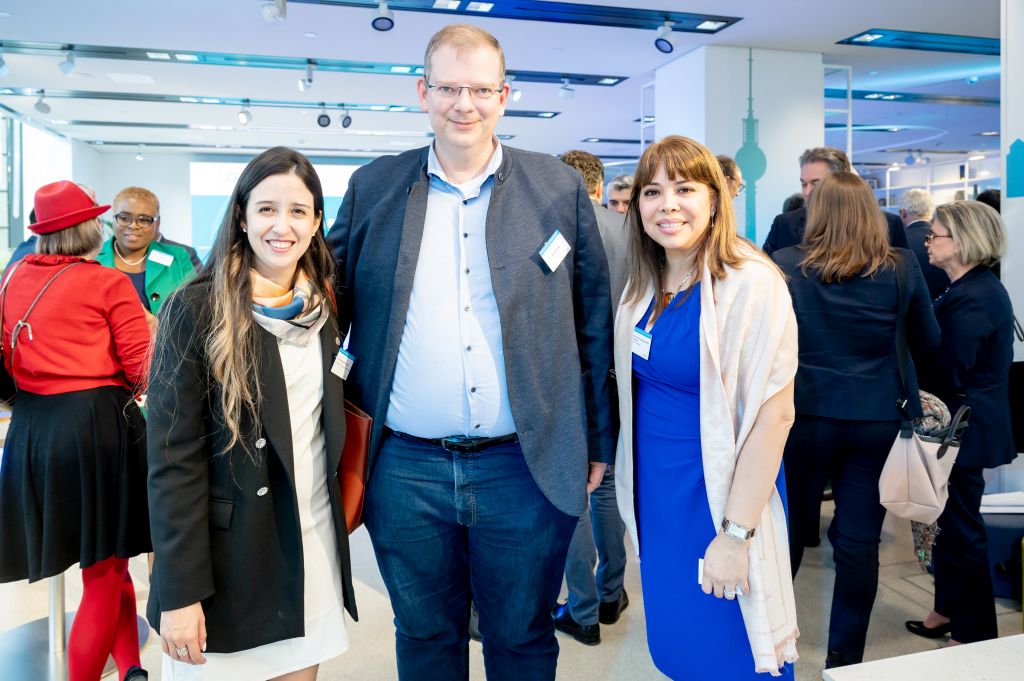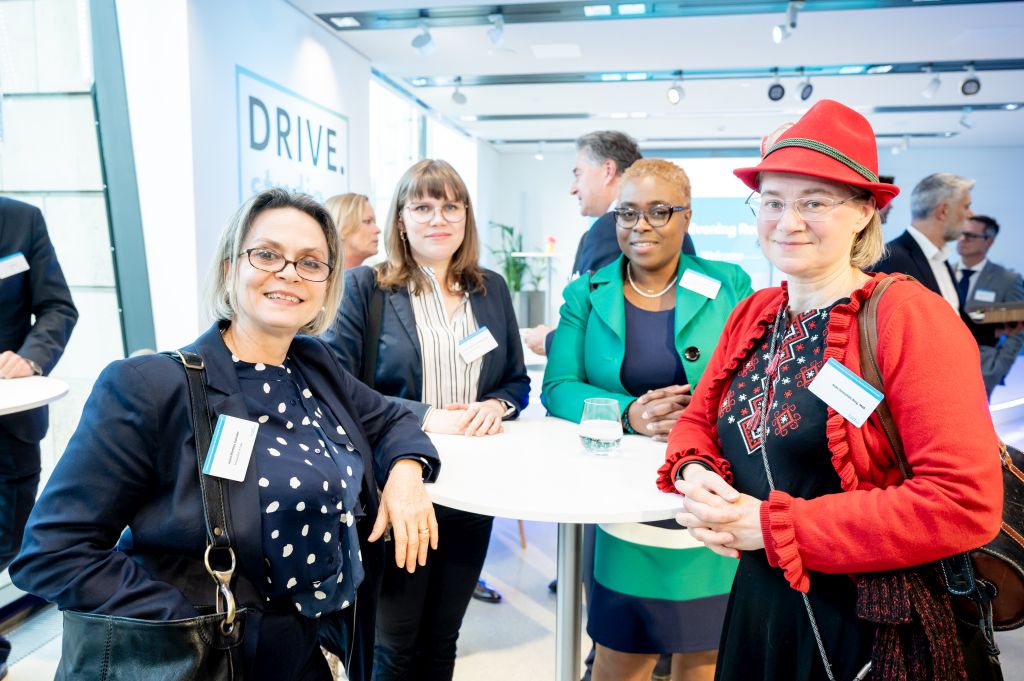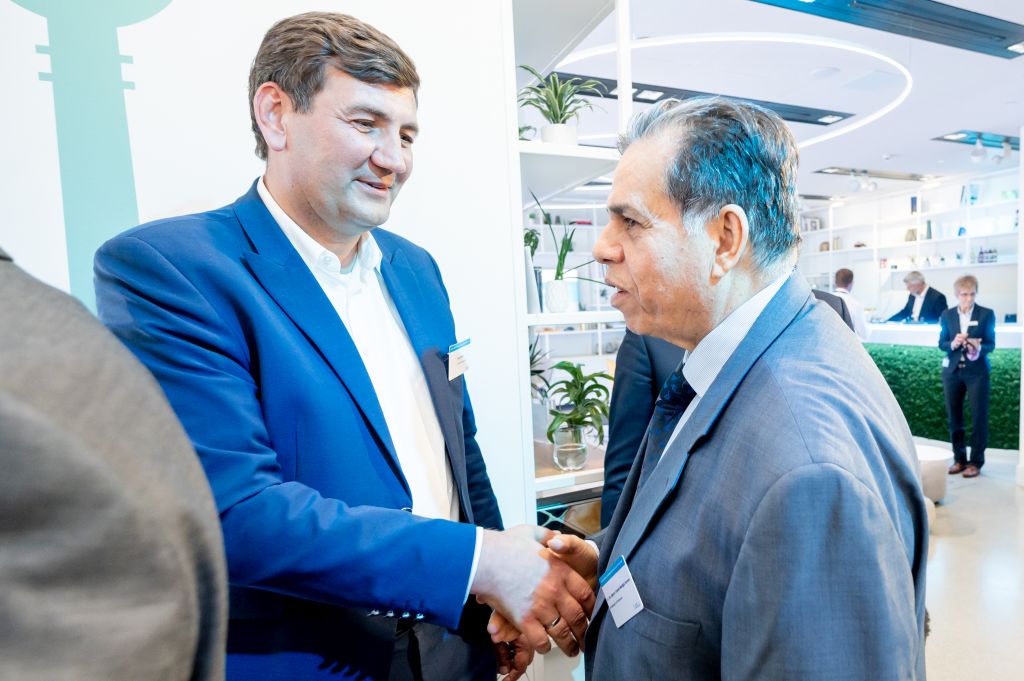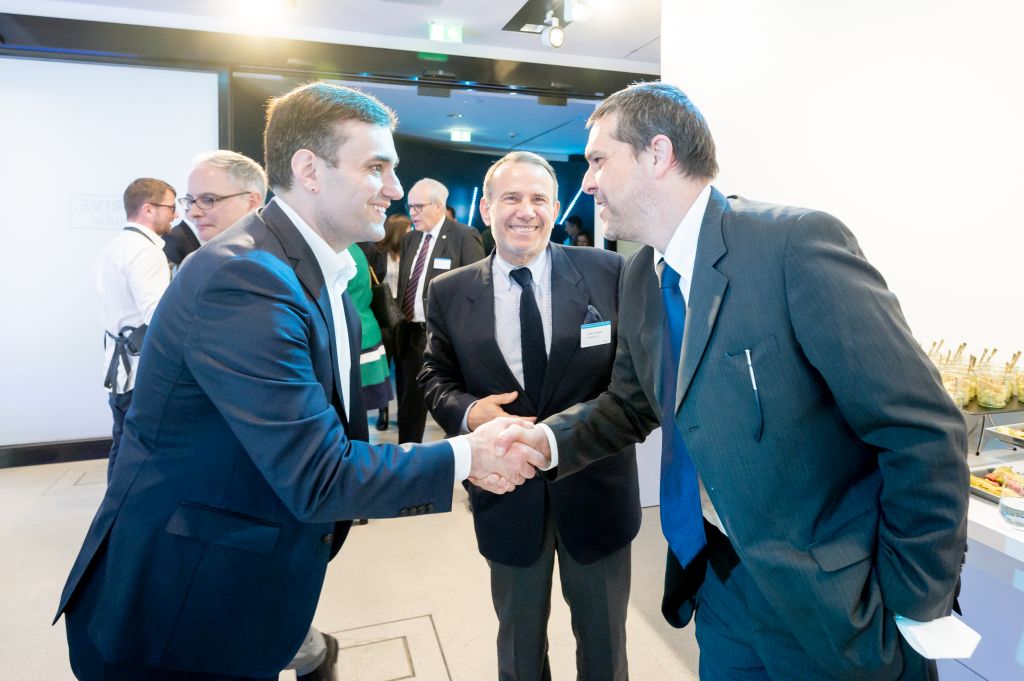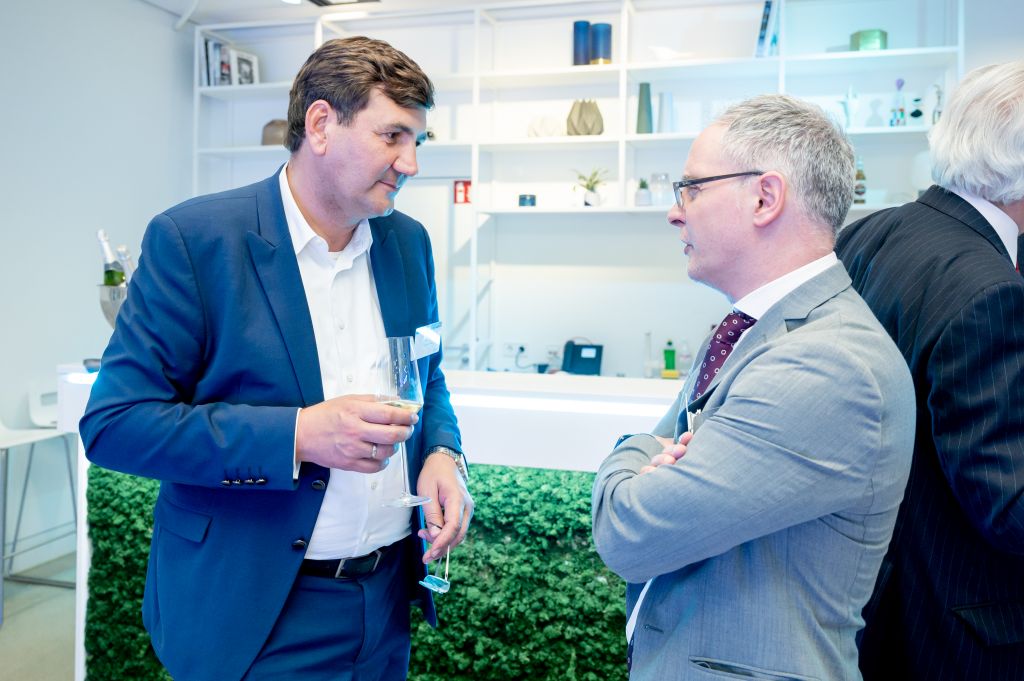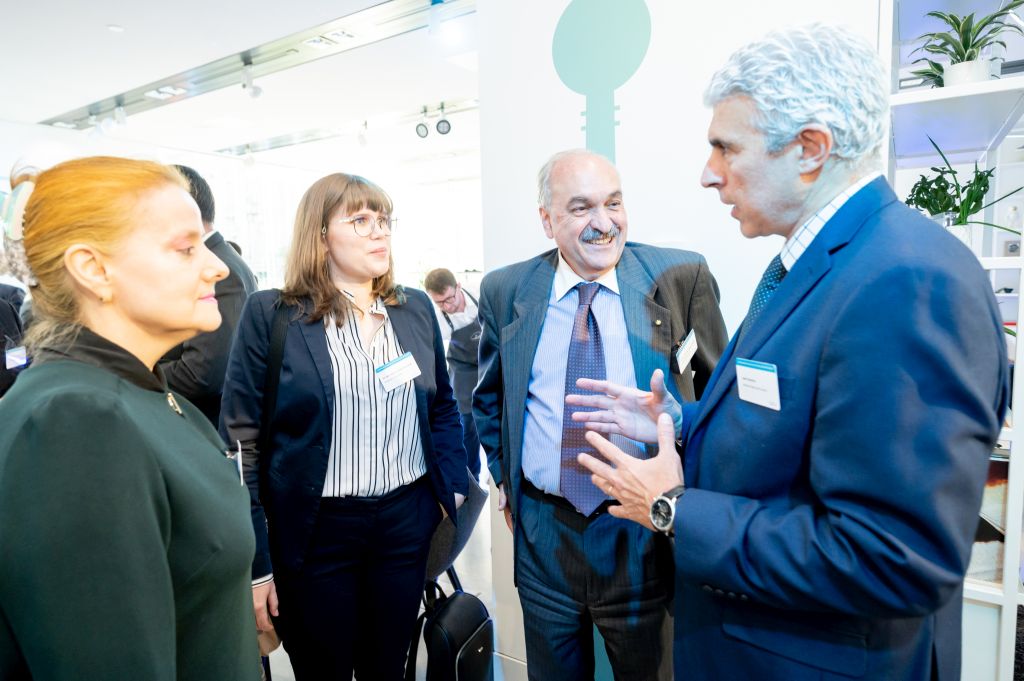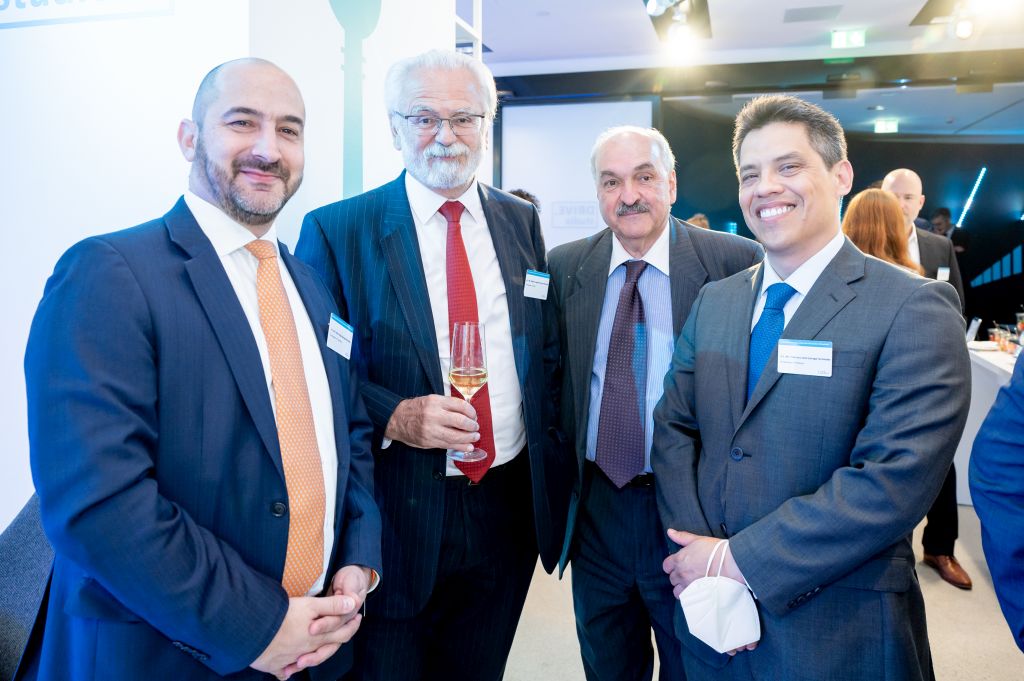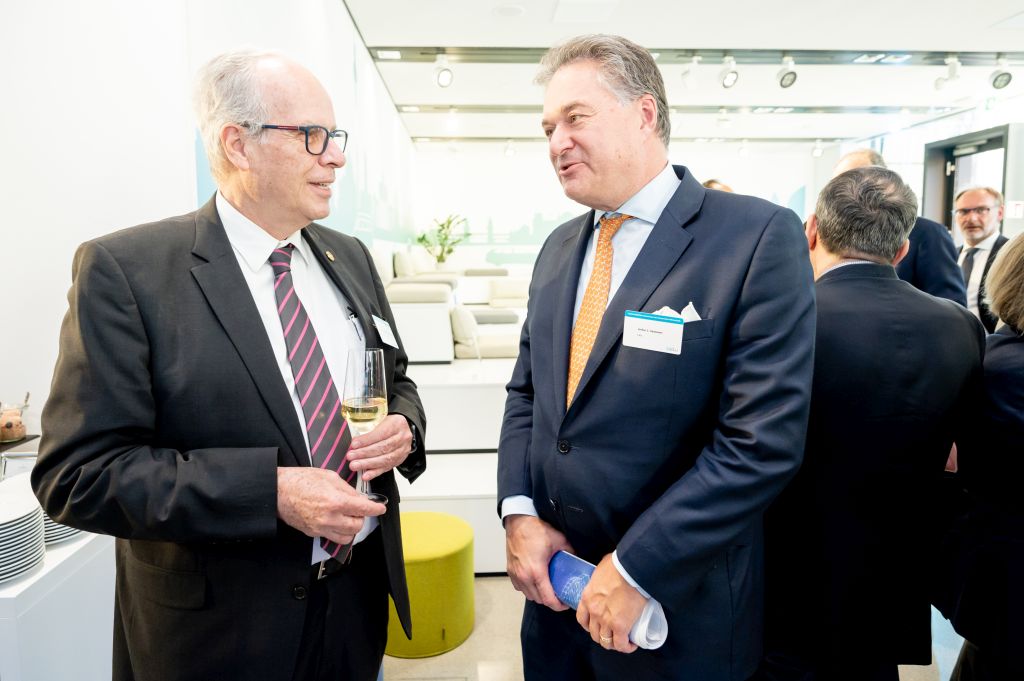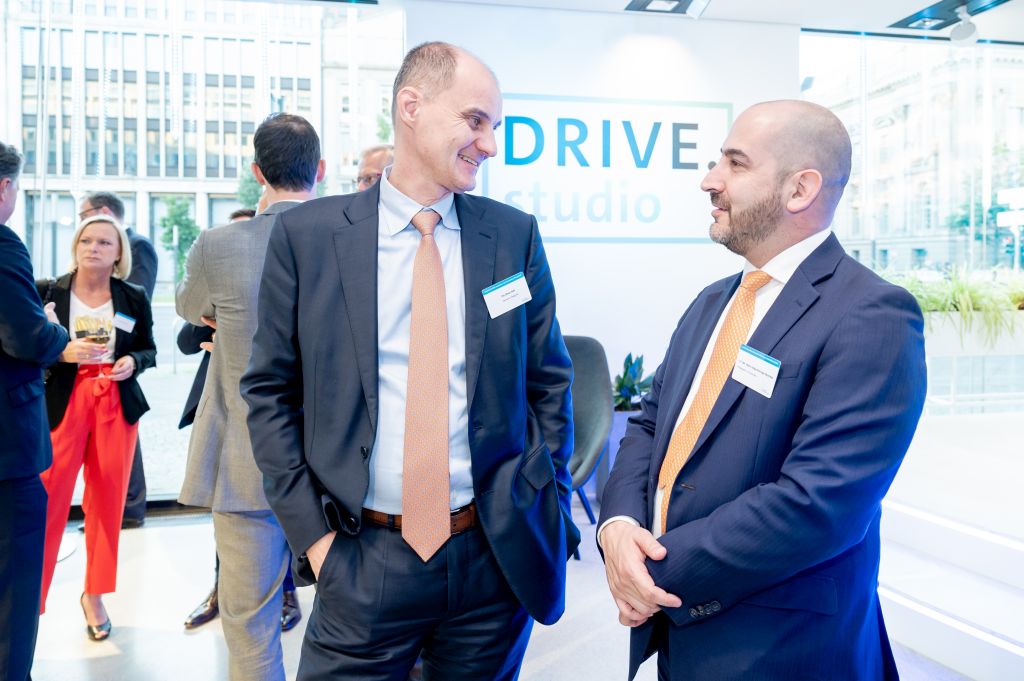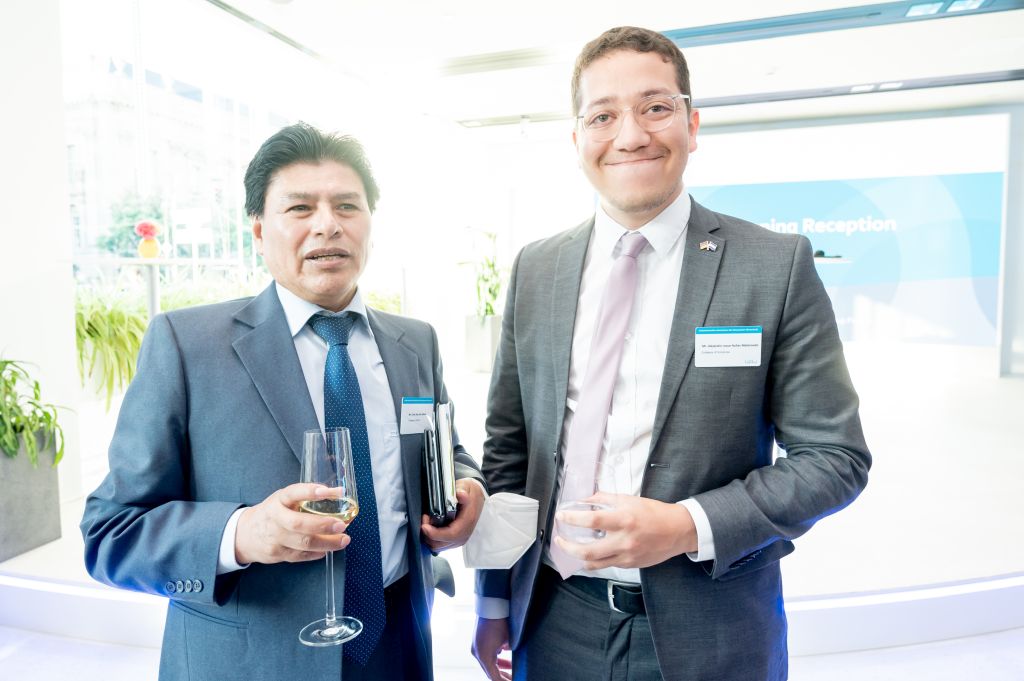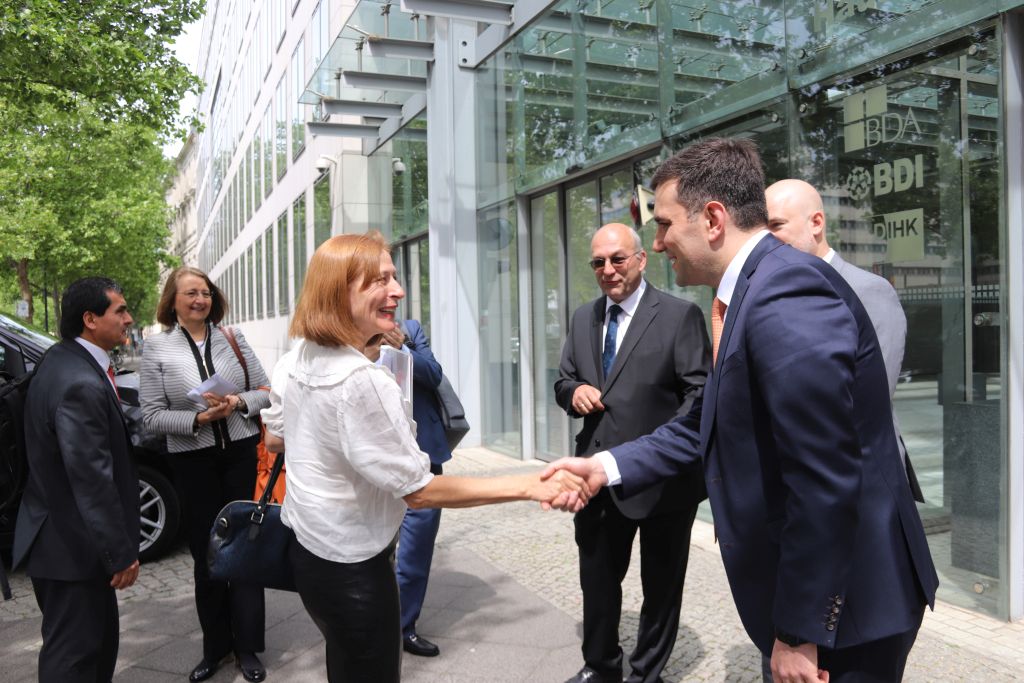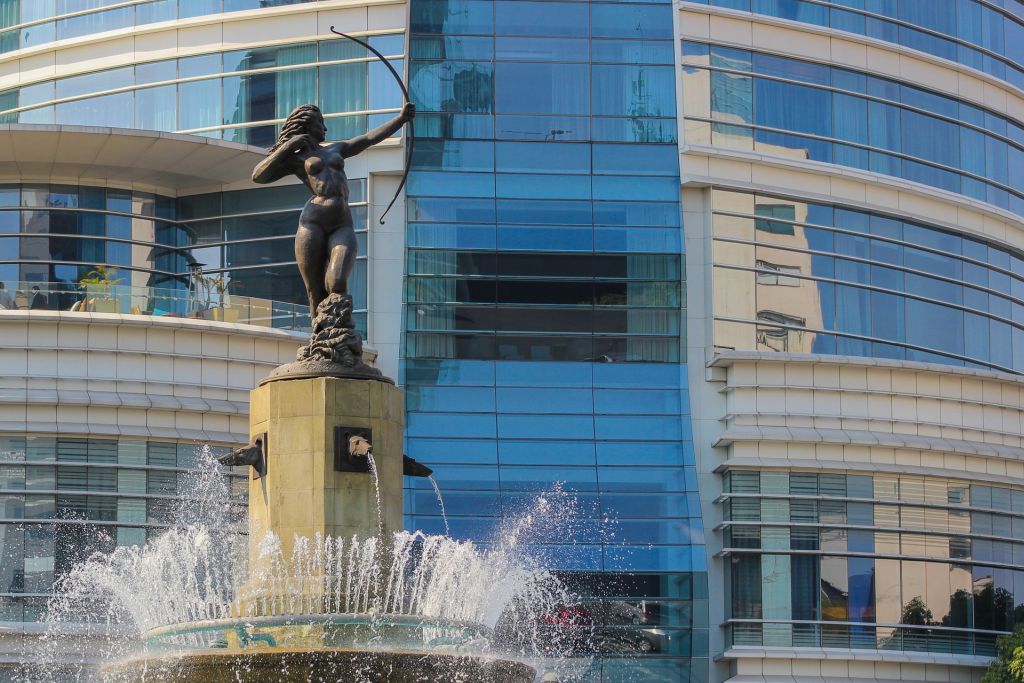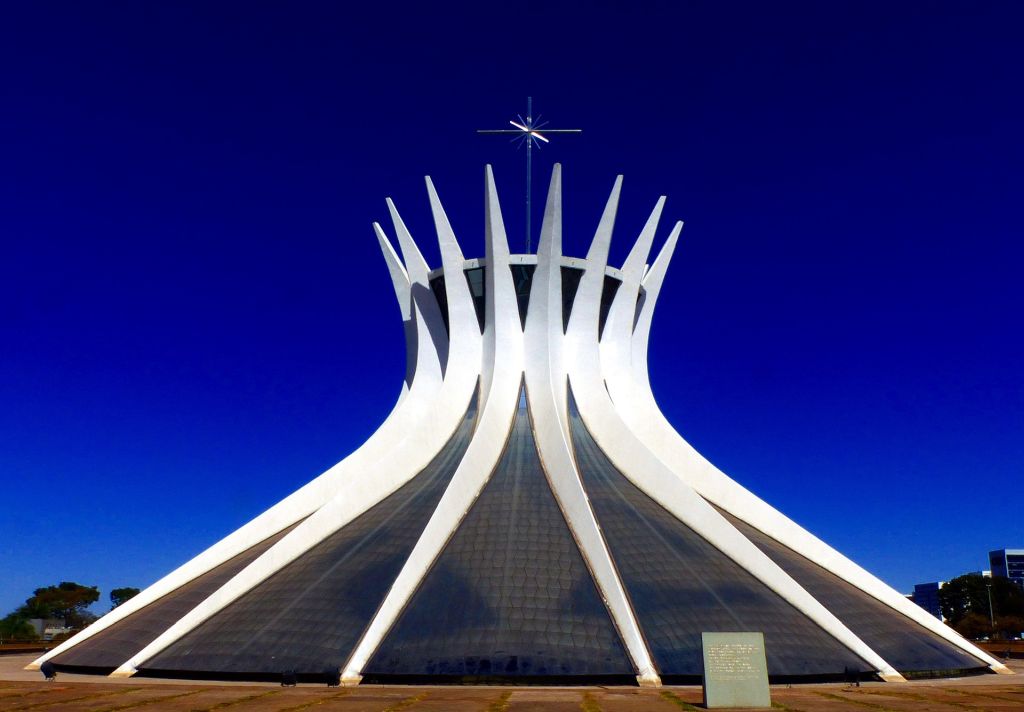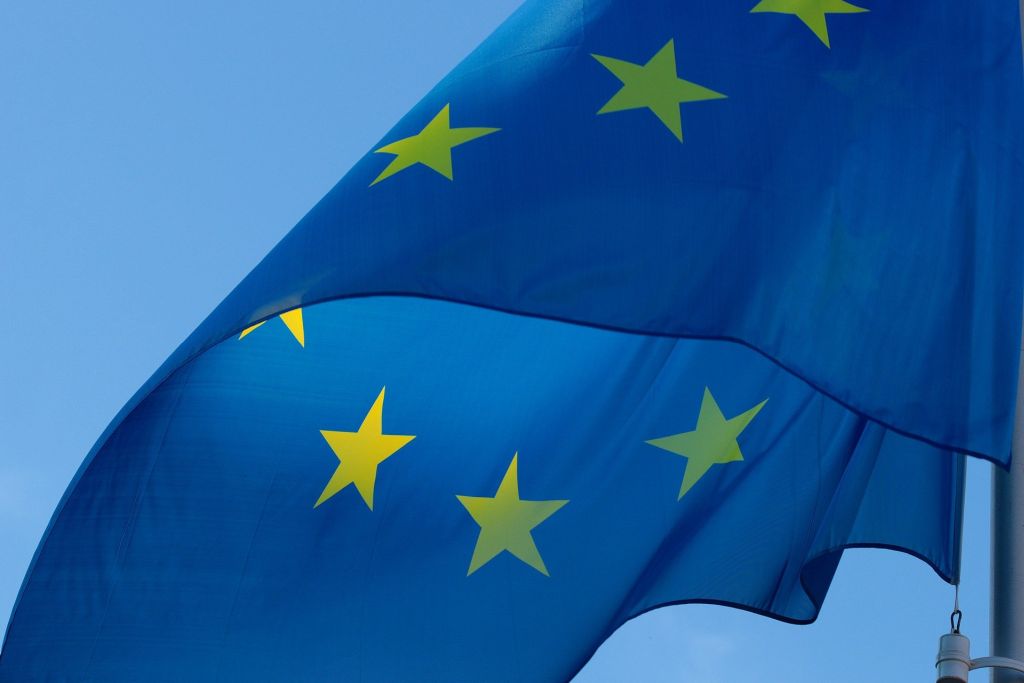FAQ Free Trade Agreement between EU and Mercosur
The Association Agreement between the European Union and the Mercosur countries – Argentina, Brazil, Paraguay and Uruguay – contains provisions on political dialogue, cooperation and trade. On the sidelines of the G20 summit on 28 June 2019, an agreement on the trade part was reached after almost 20 years of negotiations. The agreement creates the world’s largest free trade area with a population of almost 800 million. It is a milestone for closer economic cooperation. Above all, innovative small and medium-sized enterprises will gain greater legal security for their business activities as a result of the agreement. Before it can enter into force, it must be ratified by the European and national parliaments
But Europe must not miss the great opportunity to conclude one of the first free trade agreements with the South American economic area. This will open up many new business opportunities and competitive advantages. Especially in a global economic crisis, this would provide valuable impulses for the economy and jobs in the signatory states. However, it would be at least as important to consolidate geopolitically significant partnerships at a time when multilateral trade rules are often disregarded, and protectionism and national interests are placed above international cooperation by some states. With the FTA, the EU can actively shape globalisation according to its own ideas. The agreement permanently shapes the rules for good trade relations, promotes the multilateral principles of transparency, equal treatment and non-discrimination and strengthens international agreements to promote social and environmental standards. In addition, the FTA creates the basis for an intensive political and social dialogue to implement the agreements. If we do not succeed in working more closely together on a contractual basis, we will miss a good opportunity to align values and standards in the Mercosur countries with the high level of the EU.
1) Why does the EU want a free trade agreement with the Mercosur states at all?
Europe and the global economy as a whole benefit enormously from international trade and cross-border investment, including the division of labour behind it. EU trade policy aims to create the conditions for a smooth and rule-based exchange of goods, services and investments through agreements with groups of states, for example in the World Trade Organisation (WTO), and individual states. EU bilateral trade agreements complement the general multilateral framework of the World Trade Organization. Bilateral agreements are concerned on the one hand with mutual market opening, but also always with spreading high EU standards and fundamental values internationally, such as openness, the rule of law and transparency. Although the European Union has long maintained substantial economic relations with the Mercosur states, there is still no comprehensive bilateral trade agreement. Instead, large parts of the Latin American market are still characterised by high customs and other barriers. The EU-Mercosur Free Trade Agreement would significantly facilitate trade with the South American states.
2) Why does the German economy need a free trade agreement with Mercosur?
The German economy cannot survive without open markets abroad. More than in almost any other country, prosperity in Germany depends on rule-based trade. The close integration into the global economy is reflected in employment: almost 30 percent of German jobs depend directly or indirectly on exports, and in the manufacturing industry the figure is as high as 56 percent. Already today, around 240,000 jobs in Germany are attributable to exports to Mercosur. Only 2.4 percent of German exports today go to the Mercosur countries. Through free trade with Mercosur, Germany could significantly increase its exports to the region and at the same time reduce its risk exposure when exporting to other markets.
3) What advantages does the EU-Mercosur agreement offer German companies?
The free trade agreement with Mercosur gives German companies free, rule-based access to a market of around 265 million consumers. The Mercosur countries, which are currently still sealed off by high tariffs, have a great need for modernization. High import costs can be a major obstacle – the average customs duty applied to industrial goods imports in Argentina and Brazil is more than three times as high as in the EU (2018 according to the WTO: 14.2 / 13.9 / 4.2 percent). South Americans are also young, open-minded about new technologies and have an affinity for Europe. All this means that there are great sales opportunities for German products and solutions. Companies and consumers will also benefit from the savings potential resulting from the abolition of customs duties and other trade barriers. This is a matter of several billion euros annually.
4) Is the agreement also attractive for small and medium-sized industrial enter-prises?
Absolutely! Trade barriers place a much greater burden on small businesses than on large companies, as they often have neither the time nor the resources to overcome these hurdles. The increased transparency that the agreement would create and the simplification of customs procedures would be particularly helpful to small businesses on both sides. In order to address the particular challenges faced by small and medium-sized enterprises (SMEs) in international trade and investment, the EU trade agreement with the Mercosur countries contains a special chapter on their promotion. This can benefit not only SMEs, which will only be offered interesting business opportunities under the improved conditions, but also the almost 10,000 SMEs in Germany that already export to Mercosur today.
5) Does the agreement entail risks for the German economy?
The agreement is designed precisely to minimise risks in trade transactions with Mercosur by clearly regulating the exchange of goods and services. Major risks would be more likely to arise if the agreement did not enter into force. Mercosur is currently negotiating numerous free trade agreements with other countries and regions. European products and services would no longer be competitive in the long term in comparison with goods from these countries if they were subject to import duties and trade barriers in the Mercosur countries, but the offers of competitors were not.
6) What opportunities does the agreement offer the Mercosur countries?
The agreement offers Mercosur countries a great opportunity to modernise their entire production chain – in agriculture, industry, trade, transport and services – in a sustainable manner. The EU is one of the largest and most attractive markets in the world, and the agreement will make it easier to access it. This could bring major benefits for the local economy, with more economic growth, jobs, social security and better products for the end consumer.
7) Does the agreement weaken European agriculture?
The interests of European agriculture are duly taken into account in the Agreement. Sales of European products popular locally, such as wines, spirits and cheeses, will no longer be burdened by excessively complicated procedures and customs duties of 20 to 35 percent. In addition, the EU could be the first trading partner to conclude an agreement with the Mercosur states. This would give the EU and Germany privileged market access in the coming years. Even if adjustment processes on the European side are to be expected, the agreement as a whole would also benefit the German agricultural and food sector. The partnership agreement offers a good basis for fair competition.
8) Will the high standards of consumer protection in the European Union be maintained?
Yes, the high EU consumer protection standards are not negotiable. As with all free trade agreements, agricultural and food products imported from Mercosur must meet strict EU safety standards. These apply to all products sold and consumed in the EU, whether domestically produced or imported. The agreement will not change this.
9) What does the agreement mean for the environment and the Amazon rainforest?
The FTA offers a unique opportunity for the EU to have a positive impact on environmental and sustainability standards in the Mercosur region. In a separate sustainability chapter, the countries are obliged to comply with regulations on biodiversity, sustainable forest management and combating illegal logging. The European Commission is relying on a dialogue-oriented enforcement mechanism for this purpose: cooperation in bilateral, regional and international forums is to ensure that the agreements of the sustainability chapter are implemented. This mechanism also offers civil society organisations an active role in monitoring the implementation of the agreement, in particular all environmental concerns.
10) Does the agreement have an impact on climate protection?
The EU agreement with the Mercosur countries offers concrete mechanisms that can be expected to have a positive impact on climate protection, although an increase in trade may lead to more transport and possibly emissions. The agreed commitments ensure, among other things, greater efficiency in trade and production, faster diffusion of environmental technology, better compliance with international standards and, with increasing prosperity, a tendency to invest more in environmental protection and more environmentally friendly products. In addition, the agreement increases the commitment of the parties to climate protection. For example, the EU and Mercosur have also committed themselves in the FTA to implementing the Paris Climate Change Convention. This provides additional leverage to bind the partner countries to it. For Brazil this also includes a commitment to combating deforestation. In addition, the 2030 Agenda for Sustainable Development, to whose goals the Mercosur countries have committed themselves, is to develop mechanisms to counter climate change.
11) Are workers' rights protected by the agreement?
The chapter on sustainable development also protects respect for labour rights. The parties have agreed that the EU-Mercosur agreement must promote existing rights and not dilute them. They refer to the fundamental rights of workers as defined by the International Labour Organisation (ILO), such as non-discrimination in the workplace, the abolition of child and forced labour, freedom of association and the right to collective bargaining. A speedy entry into force of the agreement could counteract regressions in workers’ rights earlier, which trade unions in individual Mercosur states recently reported.
12) Will the agreement include provisions on investment protection?
Investment protection was not part of the negotiations between the EU and Mercosur countries. Germany has bilateral investment promotion and protection treaties (IPTs) with Argentina, Paraguay and Uruguay. An IPT with Brazil has been signed but is not yet in force.
MORE Information
Answers of the European Commission to other important questions can be found here.
